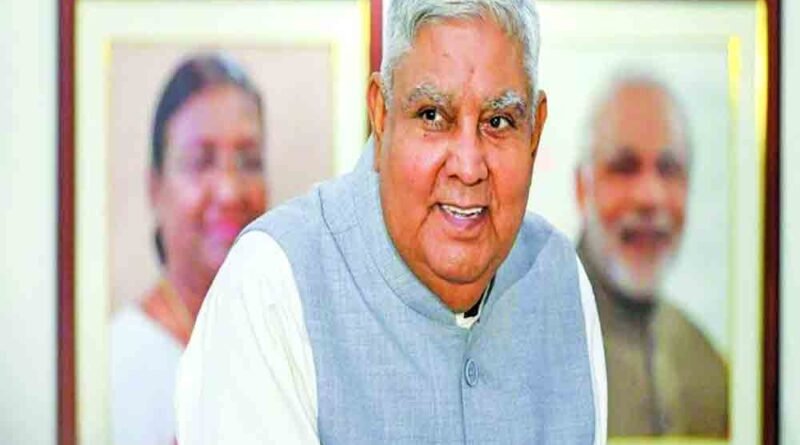Bad beginning
The Veep should have better avoided criticism of the apex court in his Rajya Sabha speech
Vice-President Jagdeep Dhankhar has begun his tenure as Chairman of the Rajya Sabha with a combative note. In his maiden address in the Upper House, he expressed his displeasure over the fact that the National Judicial Appointments Commission (NJAC) Bill, unanimously passed by Parliament, was “undone by the Supreme Court.” This was, according to him, a “severe compromise of parliamentary sovereignty and disregard of the mandate of the people.” The remark was as uncharacteristic as it was avoidable. Uncharacteristic because when a person enters a high office, they prefer to say nice things and sound accommodative. Platitudes rather than barbed comments are heard on the first day. But it looks like Dhankhar is yet to shed his belligerence that he exhibited in Kolkata as West Bengal Governor. He became a thorn in Chief Minister Mamata Banerjee’s side, incessantly slating her government and its actions. It is widely believed that he has been rewarded for his bellicosity. At any rate, his elevation may have inspired other Governors to become more aggressive; one example is Kerala Governor Arif Mohammad Khan. But Dhankhar must realise that his statements will now be highlighted and scrutinised much more than they were earlier. He should have avoided criticism of the apex court in such strong words. He must remember that the executive, the legislature, and the judiciary are three integral organs of the system which have to work in tandem, not fight with each other.
This is not to say that the Supreme Court’s decisions cannot or should not be criticised; they can be and must be, for that is how a vibrant democracy functions. But the manner in which criticism is made is very important—more so when the person slamming an apex court verdict holds a Constitutional office, as Dhankhar does. Hinting that the top court of the land disregarded the mandate of the people was not just excessive but also in bad taste. We commented earlier that the Government’s preference for the NJAC was justified. Three or half of the now disbanded NJAC comprised top judges only; two other members were also appointed in a manner in which government representation was in a minority. It looked like a reasonable system but the Supreme Court invalidated it in 2015. So, the collegium system continues. A few weeks ago, Law and Justice Minister Kiren Rijiju described the collegium system as “opaque.” In fact, he claimed that a majority of judges agreed with him: “Judges are not happy with the collegium system today.” He claimed that when judges select judges, there is politics. In fact, “the politics of us politicians is nothing to what goes on in the judiciary.” By echoing the Government’s position on an important issue, Dhankhar has not presented himself as an impartial Chairman of the Rajya Sabha who could hope to enjoy bipartisan support in the House. This is unfortunate.
Source: The Pioneer




